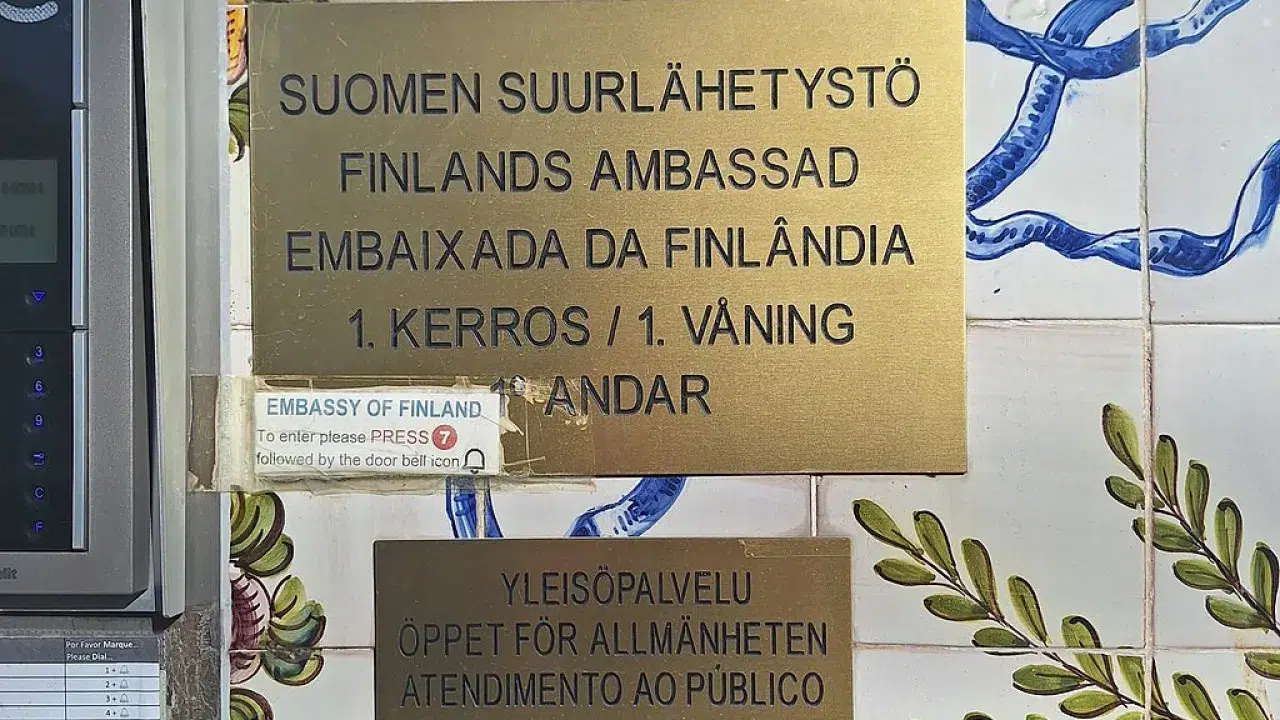
In an interview with Lusa, Titta Maja-Luotto, who has been serving in Portugal since last September, expressed regret over the situation facing the embassy, attributing it to changes she has implemented, particularly concerning staff roles.
Seven employees of the embassy and the ambassador’s residence in Lisbon, including three Portuguese nationals, filed a complaint with the Finnish Ministry of Foreign Affairs in February, although the alleged harassment was initially reported to authorities in October.
The workers cite incidents of harassment, intimidation, insults, age discrimination, racist behavior, and emotional abuse, describing their conditions as “exhausting” and impacting their physical and mental health.
The ambassador argued that the dispute highlights “the importance of communication in the workplace,” acknowledging that “the line of communication has not always been as open as it should be.”
Maja-Luotto recognized that the team is “under significant mental stress,” which she regrets, as she sought to modify staff roles to allocate “more working time to substantive issues instead of administrative matters to improve reporting to the ministry.”
“Some of these processes were not satisfactory for the people,” she commented, admitting that she should have “implemented these changes more slowly.”
Conversely, she emphasized that there are Finnish Ministry of Foreign Affairs standards that must be adopted in all embassies, as well as those concerning Portuguese legislation.
“I detected some anomalies and requested an internal investigation, including a forensic analysis,” she said, noting that the deadline for this procedure is confidential.
“We need answers to determine if all practices are being followed,” she explained.
The ambassador expressed her belief that the employees “are not doing anything wrong” and praised the team: “The embassy has great professionals who are dedicated and are doing an excellent job.”
“They lack understanding of Portuguese law and do not comprehend that there are regulations we must comply with,” she stated, justifying the need for “external help.”
One episode reported by the employees in a hearing with Finnish Ministry of Foreign Affairs officials, related to the complaint, involves an alleged disparaging comment about African people made by the diplomat.
When confronted with this allegation, the ambassador vehemently denied it, describing it as “a misunderstanding.”
“I have discussed several times the fact that we come from diverse ethnic backgrounds, and this means we need to understand each other,” she noted.
The diplomat further argued that “there is a basic minimum level of skills that everyone working in European Union embassies must have” and stated that she offered support, including training, to help staff “meet these requirements.”
“I spoke about equal treatment in a way to make the workplace more equal and more ethnically diverse. And I never, ever dismissed anyone’s qualities but encouraged them to acquire the skills needed in Portugal by 2025,” she remarked.
“I am very sorry that this kind of activity has been perceived as racist or ethnically discriminatory,” she commented, emphasizing that her diplomatic career has been guided by “avoiding racial discrimination and any form of discrimination,” and she is “known as a feminist in the Ministry of Foreign Affairs.”
The Finnish Ministry of Foreign Affairs has completed its investigation, but the result is confidential, an official source from the Helsinki government stated on Thursday, indicating that “the decision on potential consequences under public service law is still under review and no decision has been made.”
The ambassador is awaiting the outcome of the process calmly, while two of the complainants admitted to Lusa that the result was “highly disappointing.”




